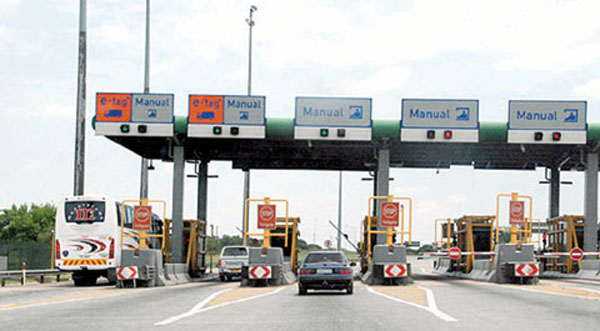Nigeria Opens Four Land Borders, Defers Others To Dec 31.
Traders, business owners and consumers in Nigeria may now be relieved following the order by President Muhammad Buhari to re-open four of the land borders that were closed since August 2019.
Minister of Finance, Budget and National Planning while disclosing at the end of the 28th virtual FEC meeting on Wednesday listed the borders as Seme in the southwest, Illela in Sokoto State, Maigatari in the northwest, and Mfun in the south-south.
The President also directed that other land borders be opened by December 31, 2020.
Nigerians endured an agonising sixteen months during which prices of food and goods hit the roof while manufacturers also lament lack of raw materials which forced many factories to low capacity utilisation.
However, following pressures from Nigerians especially following the exemption of Dangote Cement, BUA and a gas supply firm from land border trade restriction policy of the government., plans to re-open the land borders that were initially, partially closed, was revealed on December 8 by President Buhari at a security meeting with the members of the Nigeria Governors’ Forum (NGF) at the Presidential Villa in Abuja. He explained that the closure of the nation’s land borders as part of the efforts by the government to control the smuggling of weapons, illicit drugs and smuggling of agricultural produce into the country.
“Now that the message has sunk in with our neighbours, we are looking into reopening the borders as soon as possible,” he was quoted as saying in a statement by Garba Shehu, his Senior Special Assistant on Media and Publicity.
The border closure also affected countries including Niger Republic, Benin Republic, Chad and Cameroun from which a larger percentage of trade activities were transacted with Nigerians.
Besides the closure, which was announced by Comptroller-General of the Nigeria Customs Service (NCS) Col. Hameed Ali (Rtd) under the codename: “Ex-Swift Response”, was to promote the consumption of Made-in Nigeria products and encourage local investors, especially rice farmers.
Commenting later, Information, Culture and Tourism Minister Lai Mohammed said the measure drastically reduced incidents of cattle rustling, kidnapping, armed banditry and other forms of insecurity in the Northwest while the NCS described border closure as a blessing to the country, as it claimed smugglings were curb, leading to increasing of daily revenue to N7 billion from N4.5 billion.
Col Ali explained: “When we closed the border, my fear was that our revenue was going to drop. To be honest, our revenue kept increasing. There was a day in September that we collected N9.2 billion in one day. It has never happened before. This is after the closure of the border and since then, we have maintained an average of about N4.7 billion to N5.8 billion on a daily basis, which is far more than we used to collect.
The decision drew reactions from the Authority of ECOWAS Heads of State and Government which, on February 10, 2020, set up a committee headed by President Roch Marc Christian Kabore of Burkina Faso to study and make a full report on Nigeria’s land border closure with neighbouring countries.
The decision was taken at an extraordinary session of ECOWAS leaders in Addis Ababa, Ethiopia.
Lagos Chamber of Commerce and Industry (LCCI) equally protested the decision which it said lead to disruptions and losses by businesses, stating that a large number of informal sector players and individuals doing legitimate businesses across the borders were crippled.
According to Muda Yusuf, the LCCI Director-General, “Jobs were lost, prices skyrocketed, legitimate exports to the sub-region were halted, intermediate products for some manufacturers were cut off and some multinational companies were de-linked from their sister companies in the sub-region.
“The economies of border communities were paralysed with consequences for unemployment and poverty. Over 90 per cent of Nigeria’s trade with the West African sub-region is by road. We export manufactured products as well as agricultural products, detergents, toothpaste, plastic products, steel products, kitchen utensils, grains, ginger, onions, among others. We also undertake many re-exports to the sub-region. These are sources of livelihood of Nigerians doing legitimate businesses.”
Yusuf said there are also thousands of transporters who make a living from legitimate trading activities running into hundreds of billions of naira. He advised the government to weigh the costs and benefits adding that often, the government fails to count the cost of its policy on the citizens and businesses.
The LCCI chief said the contribution of trade and commerce to the economy should not be underestimated as distributive trade sector accounts for about 15 per cent of the nation’s Gross Domestic Product (GDP). According to him, traders play a major role in the value chain of the real sector activities in the economy as it is perhaps the largest employer of labour in the nation’s economy.
He argued that the position of LCCI on the border closure is not to diminish the importance of security in the border management process but for government to deal with neighbouring countries identified as sabotaging government efforts to curb smuggling and check insecurity.
During the period also, Southwest stakeholders, including the six governors, demanded the reopening of the borders to stimulate the region’s economy at a meeting with a presidential delegation led by Chief of Staff to the President Prof. Ibrahim Gambari, the governors and traditional rulers said the continued border closure was hurting the economy
They said: “We believe that the prolonged closure of the borders has caused economic difficulties and should be re-examined to alleviate problems of the people in the border communities and prices of some essential commodities. There is a need to review the closure and permit resumption of economic and trading activities.”



Comments are closed.